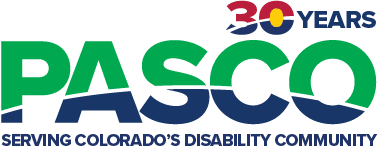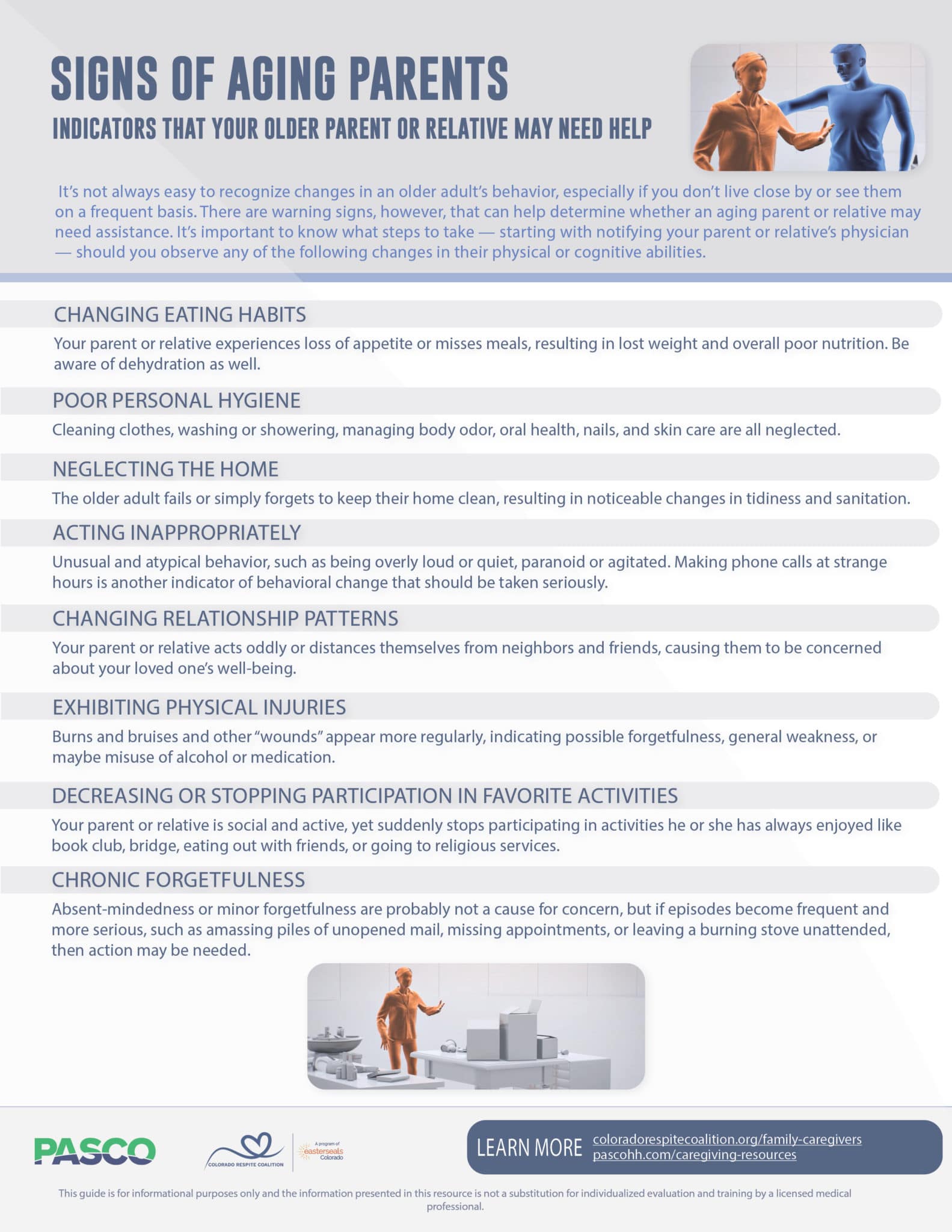It’s not always easy to recognize changes in an older adult’s behavior, especially if you don’t live close by or see them on a frequent basis. There are warning signs, however, that can help determine whether an aging parent or relative may need assistance. It’s important to know what steps to take — starting with notifying your parent or relative’s physician — should you observe any of the following changes in their physical or cognitive abilities.

Changing Eating Habits
Your parent or relative experiences loss of appetite or misses meals, resulting in lost weight and overall poor nutrition. Be aware of dehydration as well.
Poor Personal Hygiene
Cleaning clothes, washing or showering, managing body odor, oral health, nails, and skin care are all neglected.
Neglecting the Home
The older adult fails or simply forgets to keep their home clean, resulting in noticeable changes in tidiness and sanitation.
Acting Inappropriately
Unusual and atypical behavior, such as being overly loud or quiet, paranoid or agitated. Making phone calls at strange hours is another indicator of behavioral change that should be taken seriously.
Changing Relationship Patterns
Your parent or relative acts oddly or distances themselves from neighbors and friends, causing them to be concerned about your loved one’s well-being.
Exhibiting Physical Injuries
Burns and bruises and other “wounds” appear more regularly, indicating possible forgetfulness, general weakness, or maybe misuse of alcohol or medication.
Decreasing or Stopping Participation in Favorite Activities
Your parent or relative is social and active, yet suddenly stops participating in activities he or she has always enjoyed like book club, bridge, eating out with friends, or going to religious services.
Chronic Forgetfulness
Absent-mindedness or minor forgetfulness are probably not a cause for concern, but if episodes become frequent and more serious, such as amassing piles of unopened mail, missing appointments, or leaving a burning stove unattended, then action may be needed.



